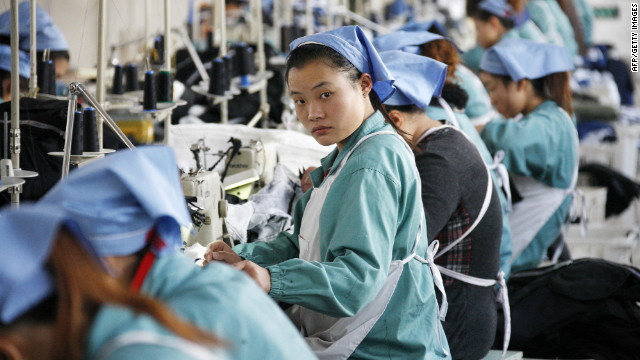|
By Bloomberg US President Barack Obama may find on his Asian visit that began today that discontent about China's currency peg to the dollar is not confined to Washington's lawmakers and business lobbyists. Asian companies say Chinese rivals have an unfair advantage because of the yuan-dollar link. The dollar has declined 14 percent in the past year against the currencies of six major trading partners. In meetings at the Asia Pacific Economic Co-operation (Apec) summit in Singapore and then in Beijing, Obama will probably discuss China's fixed-rate policy, which has prompted central banks in India, South Korea, Thailand and Taiwan to accelerate dollar purchases to curb currency appreciation. "It's just outrageous, the impact on their neighbours and on relatively poor countries," said Simon Johnson, the chief economist at the International Monetary Fund in 2007 and 2008 and a senior fellow at the Peterson Institute for International Economics in Washington. As Obama seeks to push the Group of 20 goal of rebalancing the world economy from excessive US consumer spending and Asian exports, South Korea's won gained 8 percent against the yuan in the past six months. Japan's yen has risen 6 percent, while India's rupee gained 6 percent and the Thai baht 4 percent. The People's Bank of China this week said foreign-exchange policy would take into account global capital flows and changes in major currencies and scrapped language in a previous report to keep the yuan "basically stable". The economy expanded by 8.9 percent in the third quarter from a year earlier. "There has been a subtle message sent that as China's economy starts to recover, it's probably appropriate for the PBOC to move back to a managed float," said Stephen Roach, the chairman of Morgan Stanley Asia in Hong Kong. A shift might not be imminent and would not reach the 20 percent that some US lawmakers have demanded, he said. Investors see a rising yuan. Twelve-month non-deliverable forwards for the yuan rose 0.2 percent to 6.5925 a dollar as of 3.33pm in Shanghai, signalling trader bets on a 3.5 percent gain from the spot rate of 6.8259. China has kept its currency at about 6.83 a dollar since July 2008, after a 21 percent gain the previous three years. Mahindra & Mahindra, India's largest sports utility vehicle maker, says it is unfair to compete with China in global exports when the rupee floats while the yuan is fixed. "There should be world pressure on China to respond more to global market forces and play the game right," said managing director Anand Mahindra. Banks are predicting that an end to the yuan's peg will allow currency gains across the region. It will gain 7 percent by the end of the third quarter of 2010 as both the yuan and the rupee appreciate by 3 percent, according to the median forecasts in separate Bloomberg surveys. "Over time the yuan will gradually appreciate against the dollar," said Michael Hasenstab, who oversees $45 billion (R334bn) of fixed-income investments at Franklin Templeton Investments in San Mateo, California, and whose $13.2bn Templeton Global Bond Fund has beaten 98 percent of peers during the past five years, according to data compiled by Bloomberg. He bought yuan forward contracts last year. "The economic recovery is pretty strong in China."
Apec forum finance ministers called for "market-oriented exchange rates that reflect underlying economic fundamentals" in a statement released in Singapore yesterday. They stopped short of naming any currencies. Obama and his Chinese counterparts were unlikely to clash on the yuan as he sought broader co-operation on avoiding trade disputes between the two countries, said Kenneth Rogoff, a professor at Harvard University in Cambridge and former IMF chief economist. "The Americans have very little bargaining power at the moment," said Rogoff. Treasury secretary Timothy Geithner said Asian countries had shown a "commitment to moving over time to a more flexible market-determined exchange system. We've seen a lot of progress in that direction," he said. In Washington, Senator Christopher Dodd was less optimistic. Asked on Wednesday whether Obama should discuss the yuan, the Connecticut Democrat and chairman of the Banking Committee responded: "He's got to raise that issue. You can't give your competitor, your adversary in this case, a 40 percent advantage in global economies." Steelmakers such as Nucor, the second-largest US- based steelmaker by sales, unions such as the United Steelworkers, maize growers and textile companies have ramped up pressure on Congress to enact legislation aimed at forcing China to raise the value of its exchange rate. China's trade surplus would probably be half last year's level at $200bn, which meant less pressure on the yuan to appreciate, said Liu Yuhui, director of the Center for Chinese Economic Evaluation in Beijing at the Chinese Academy of Social Sciences, which advises the government on policy. Chinese President Hu Jintao ignored the currency issue in his speech to Apec leaders, instead focusing on steps the country is taking to boost domestic consumption. Goldman Sachs Group has reiterated its three, six and 12-month forecasts for the yuan to stay at 6.83. Asian nations may also be reluctant to criticise: China's 4 trillion yuan (R4.3 trillion) stimulus plan is helping lift their economies from recession. Asian companies say their governments should take a tougher line. "Southeast Asia is at a competitive disadvantage if the yuan is linked to the declining dollar," said Richard Han, the chief executive officer at Hana Microelectronics, which competes against China. |
|
Obama cant avoid stubborn yuan as dollar swamps Asia
Updated: 2009-11-17 Source: Business Report

Recommended News
Photo Gallery
Most Popular



